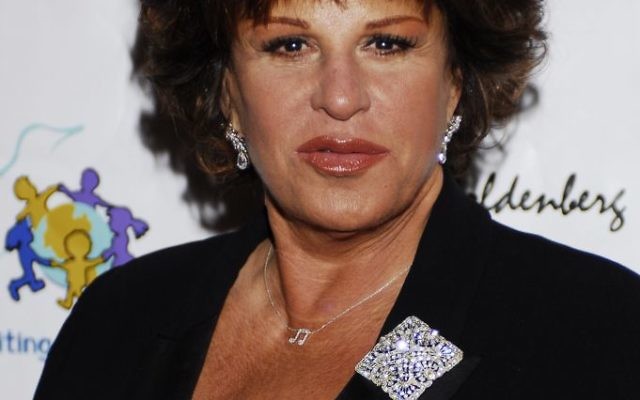Spreading Awareness of Blood Clots
Some segments of the Jewish population prove to be more vulnerable to blood clots.

The Georgia Thrombosis Forum, a community service organization and affiliate of the North American Thrombosis Forum founded in 2012 by Atul Laddu, is dedicated to spreading awareness of thrombosis, the formation of dangerous blood clots.
Research conducted by GTF and national and international bodies has found that awareness of thrombosis is low compared with its high incidence.
Thrombosis can appear as deep vein thrombosis (a severe condition caused by clotting in blood vessels), a pulmonary embolism, a heart attack or a stroke.
Some segments of the Jewish population appear to be more vulnerable to thrombosis. Factor XI deficiency, associated with severe bleeding related to injuries, is common in the Ashkenazi population, while another bleeding disorder, Factor VII deficiency, is more common among Mizrachi Jews.
But no one, regardless of age, sex or background, is exempt from thrombosis. Among the Jewish celebrities struck by thrombosis:
- Sportscaster Bonnie Bernstein, who nearly died from deep vein thrombosis in 2006 and is now a national spokeswoman for the Coalition to Prevent Deep Vein Thrombosis.
- TV newsman David Bloom who died in 2003 at age 39 after deep vein thrombosis produced a pulmonary embolism. His widow, Melanie, is active in speaking out about thrombosis.
- Actress Lainie Kazan, who suffered from deep vein thrombosis and got involved in public education about the condition.
- State Sen. Renee Unterman (R-Buford) wrote in 2013 about her experience with deep vein thrombosis in 2001 and has supported the GTF.
Blood clotting is a natural and necessary process to stop bleeding. Problems can occur, however, when clots form inside blood vessels.
Such clots kill more people in the United States each year than breast cancer, AIDS and accidents combined.
Two types of blood clots can seriously affect you: arterial and venous.
Arterial blood clots form in arteries. Such a clot can block the blood flow and oxygen supply from reaching the heart, lungs and brain, resulting in tissue damage.
Venous blood clots form in the veins and become deep vein thrombosis, pulmonary embolism or superficial venous thrombosis.
DVT occurs in deep veins, usually in the legs. SVT happens in veins near the skin. PE occurs when a blood clot blocks the flow to the blood vessels in the lungs.
If blood clots in the arteries of the heart, the result is a myocardial infarction, or heart attack. If a clot obstructs blood vessels in the brain, the result is a stroke.
Symptoms of blood clots include excruciating local pain, inflamed and red skin over the blocked vein, pain to the touch, cramping, aching and warm skin over the vein. In serious cases, the patient might cough blood.
A heart attack will cause excruciating tightness or pain in the chest and tightness or pain in the neck, back or arms, as well as fatigue, lightheadedness, an abnormal heartbeat and anxiety.
A stroke will cause confusion, loss of balance, weakness, facial paralysis, speech difficulty, impaired vision, headache, loss of sensation, dizziness and a lack of reflexes.
A blood clot in the kidney can cause damage and lead to kidney failure.
The main treatment for blood clots is the use of blood thinners, such as heparin and warfarin.
Patients with DVT should wear loose-fitting clothes, socks or stockings to let the blood flow more easily.
DVT is a serious condition that can strike at any time and age, so do not take it for granted. But the important lesson is that thrombosis can be easily prevented through lifestyle changes. Making the community aware of this opportunity can limit the impact of the condition.
Our message to the readers of the Atlanta Jewish Times is to be aware of blood clots because they can occur at any time in your life, manage your health, use preventive techniques, and get medical help promptly.
Remember, one life saved is a lot, no matter how much effort is necessary to save that life.
For more information, contact your physician, consult the NATF website at www.natfonline.org, or email GTF President and CEO Atul Laddu at AtulLaddu@gmail.com. Laddu is available to make presentations to Jewish community groups about blood clots.
Preventing Clots
The most common and effective ways to prevent blood clots:
- Maintain good health.
- Eat healthy food.
- Avoid junk food.
- Drink plenty of water.
- Exercise regularly.
- Don’t drive long distances with taking breaks.
- On flights, do foot and leg exercises, and get up every now and then.
- Don’t smoke.
- Don’t take birth control pills.



comments